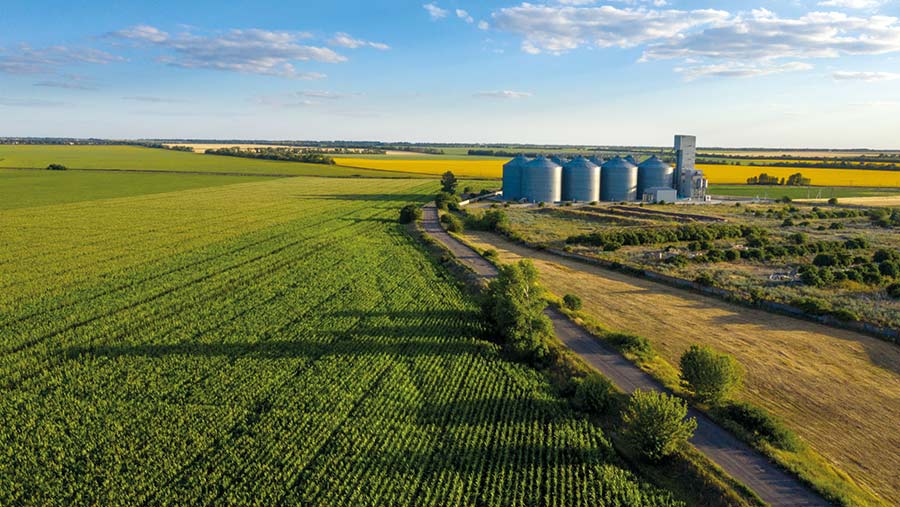Opinion: Putin’s attempt at empire building will affect us all
 © Sergii Mostovyi/Adobe Stock
© Sergii Mostovyi/Adobe Stock It was spring 1989 and I had been invited, with a party of farmers and their wives, to visit Russia and Ukraine to take a look at Soviet agriculture.
Mikhail Gorbachev had recently become president of the USSR and he had changed the old “command” system followed by his aged predecessors and introduced a more liberal regime called “glasnost”.
See also: How Ukraine war will impact its farming – agronomist’s view
He had also changed economic policies, opening them up to the world. He called that “perestroika”.
Cold War relationships between Moscow and the West had begun to thaw and that was the background to our visit.
We started in Moscow and I well remember how surprised we were that the flight time from Heathrow was less than three hours. It isn’t as far away as our different cultures might suggest.
Then to Ukraine, a state three times the size of France. The breadbasket of the region, it produces more than 10% of the world’s wheat from its fertile rolling fields.
Like most of the Soviet bloc in those days, the farming was divided into state farms or co-operatives.
We spent several days there looking at crops and livestock that were consistently mediocre, if not dreadful, compared with UK standards.
But the ruling elite proudly showed us everything. They had little concept of economic production.
Yields were all they were after to satisfy Mother Russia, but their crops showed they weren’t much good at that, either.
There were hoards of workers who seemed to spend much of their time sitting around.
The tractors they drove were ancient, drawn from big machinery yards where even older models were being cannibalised for parts to keep the rest of the fleet running.
The busiest workers were “babushkas” – old women wearing headscarves and aprons, who were tasked with all the manual jobs.
The people were a bit suspicious of us when we arrived. We were probably the first English they had seen and, following years of hostile government propaganda, that was hardly surprising.
But once they realised we were friendly farming folk, like they were, they welcomed us with open arms. Indeed, we were presented with bread and salt, the traditional welcoming gift in the region. It was quite moving.
Not long after our visit, the Soviet Union disintegrated and reverted to its original parts. Each country elected its own government and Russia was left with no empire.
Western entrepreneurs eventually began to invest in the former Soviet Union and, although I have not been back to Ukraine recently, I am told by colleagues who have that agriculture looks very different these days.
Whether those investments will survive the current conflict is anyone’s guess. But whether they do, or not, the rest of the world will be affected.
Ukraine supplies many precious metals for the microchip industry; it exports wheat around the globe; gas, as we know well already, comes through Ukraine from Russia, and much of the nitrogen fertiliser we use comes from the region as well. And that’s only for starters.
As Vladimir Putin seeks to rebuild a Soviet empire to correct what he sees as the humiliation wrought by Gorbachev, who knows where he will stop? When I was there more than 30 years ago, no-one had heard of Putin. They have now.

